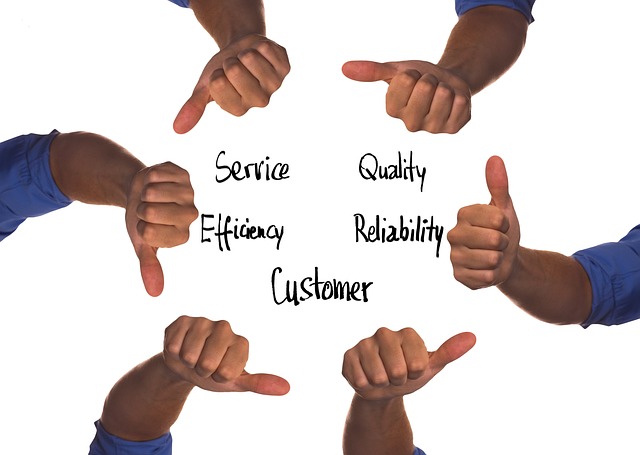Social media analytics offers businesses crucial insights through KPIs like engagement rate, reach, and conversions, enabling data-driven decisions to enhance brand awareness, optimize strategies, improve customer relationships, and drive sales, particularly for e-commerce.
In today’s digital landscape, social media analytics is crucial for understanding user behavior and campaign effectiveness. To master your online presence, it’s essential to track key performance indicators (KPIs). This article explores four vital KPIs: engagement rate, reach and impressions, conversions, and ROI. By delving into these metrics, you’ll gain insights into what drives success on social media and how to optimize your strategies for maximum impact.
- Understanding Key Metrics for Social Media Success
- Engagement Rate: Tracking User Interaction
- Reach and Impressions: Expanding Your Audience
- Conversions and ROI: Measuring Campaign Effectiveness
Understanding Key Metrics for Social Media Success

Unraveling the intricacies of social media analytics is pivotal for businesses aiming to achieve success in today’s digital landscape. Social media analytics involves a suite of key performance indicators (KPIs) that offer valuable insights into user engagement, brand awareness, and overall marketing effectiveness. By tracking these metrics, companies can make data-driven decisions to optimize their strategies. One of the primary KPIs is reach, which measures the potential audience size exposed to your content, indicating the extent of your brand’s exposure. Engagement rate, another critical metric, reflects how actively users interact with your posts, often gauged through likes, comments, and shares.
Furthermore, analyzing user demographics and behavior can provide a clear picture of your target audience. This information is invaluable for tailoring content and marketing campaigns to specific customer segments. For instance, an ecommerce solution might focus on tracking conversions from social media ads to optimize their sales funnel and incorporate effective text message marketing strategies. By understanding these key metrics, businesses can enhance their online presence, engage their audience, and ultimately drive sales.
Engagement Rate: Tracking User Interaction

In social media analytics, Engagement Rate is a crucial Key Performance Indicator (KPI) that measures user interaction with your content. It provides insights into how actively your audience is participating in your online conversations and can significantly impact your overall marketing strategy. By tracking this metric, you gain valuable information about the effectiveness of your posts, stories, and campaigns.
A high engagement rate suggests that users are not only seeing your content but also responding to it positively, whether through likes, comments, shares, or clicks. This level of interaction indicates a strong connection between your brand and its followers. Conversely, low engagement may signal the need for adjustments in content strategy, timing, or overall user experience, often highlighting areas where automation and CRM tools can be leveraged to optimize marketing analytics and improve performance over time.
Reach and Impressions: Expanding Your Audience

In social media analytics, understanding reach and impressions is fundamental to expanding your audience. Reach refers to the unique number of people who have seen your content, while impressions count each time that content is displayed. Tracking these KPIs allows you to gauge the potential visibility of your brand and the effectiveness of your social media strategy. By analyzing reach and impressions, you can identify which platforms and content types resonate best with your target audience, enabling you to optimize your efforts and maximize engagement.
Furthermore, these metrics play a crucial role in reputation management and enhancing your customer relationship management. A strong social media presence with high reach and meaningful impressions fosters brand awareness and positive customer interactions. For businesses offering ecommerce solutions, this translates into increased website traffic and potential sales conversions, as social media serves as a powerful channel to drive user engagement and interest in their products or services.
Conversions and ROI: Measuring Campaign Effectiveness

In social media analytics, conversions and ROI (Return on Investment) are crucial KPIs that measure campaign effectiveness. By tracking conversions, businesses can gauge how successful their marketing efforts have been in driving desired actions from target audiences, such as sales or sign-ups. This data is vital for understanding which strategies are delivering results and where adjustments might be needed.
For ecommerce solutions, these metrics are particularly important as they help optimize the sales funnel. Businesses can analyze which social media channels and campaigns drive the most conversions, enabling them to allocate resources more efficiently. Effective tracking also allows for A/B testing of various content types and advertising strategies, further enhancing customer relationship management by tailoring interactions to individual preferences and behaviors.
Social media analytics is a powerful tool for businesses to understand their online presence. By tracking key performance indicators (KPIs) like engagement rate, reach, conversions, and ROI, brands can optimize their strategies and achieve greater social media success. These essential metrics provide valuable insights into user interaction, audience growth, campaign effectiveness, and overall business impact, enabling professionals to make data-driven decisions and stay ahead in the digital landscape.
